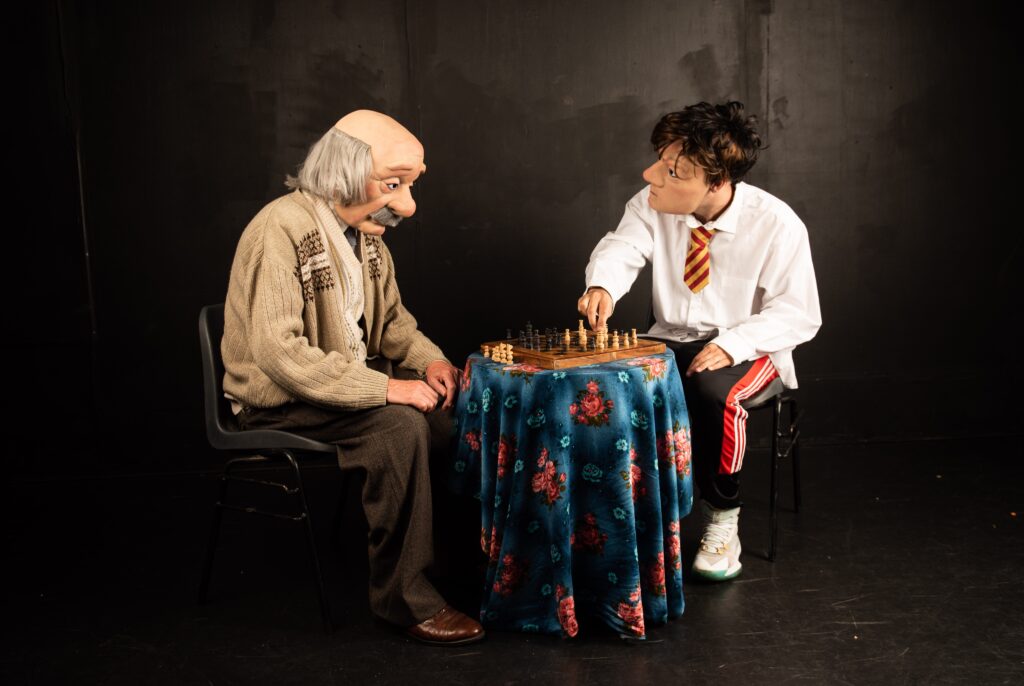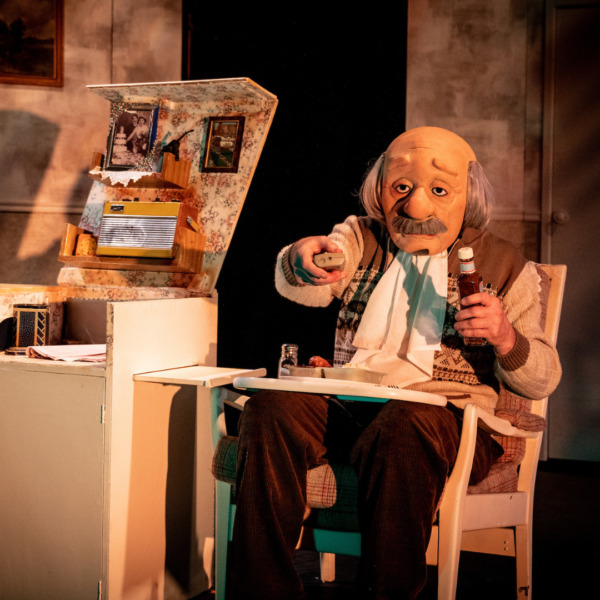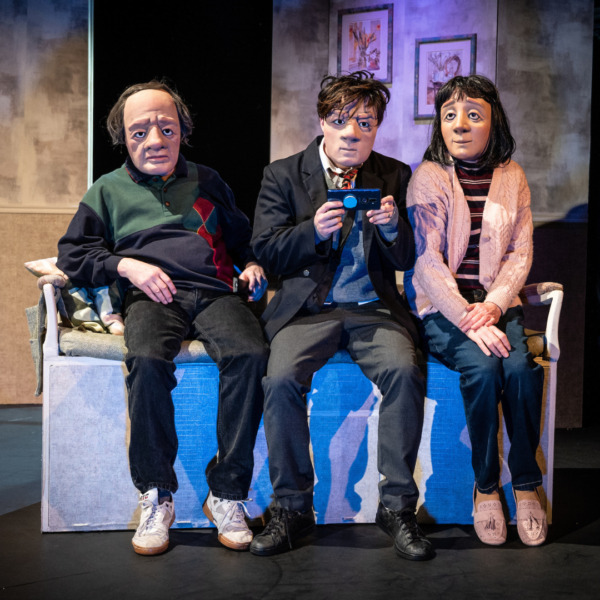
Vamos Theatre’s Artistic Director Rachael Savage makes “shows that are close to [her] heart.” The company’s new show, The Boy on the Roof, which opened in Wolverhampton last week and now makes its MimeLondon debut for four shows at Shoreditch Town Hall beginning tomorrow, is no different.
Savage tells me that the play is about a friendship between two very unlikely people. “[It’s about a] teenager, Liam Baxter, who is undiagnosed with Attention Deficit Hyperactivity Disorder (ADHD) and his 91-year-old neighbour, Albert, who’s desperately lonely after the death of his wife, but [is] even more isolated by hearing loss.”
It’s also about neighbours and communities – “[how we can] live so closely together and [have no] social cohesion,” she says.
Among the cast and creative team of the full mask theatre company who have developed the show, Rachael singles out the impact Gavin Maxwell has had on the production where he has acted both as advisor to the production and a cast member, taking on the role of Liam.
“In working with him, I got to know him as a person, I became really interested in his energy, in his incredible focus, [and his] sometimes out of the box ideas… a very different kind of performer to anybody that I’d worked with before, but also a lovely, lovely human being,” she says.
It was through conversations with Maxwell that, in part, led to the development of Boy on the Roof. “He talked to me a lot about his own diagnosis of being neurodivergent,” she says, with his journey from education to work something she found incredibly powerful.

“The educational systems that we have in place often doesn’t suit people who are neurodivergent, and yet when he’s broken out into… his own career he’s excelled because he’s doing what he needs to do, and he’s phenomenal.”
The company has been bolstered by James Greaves and Alan Riley, who complete the cast with Savage directing. She describing the experience and expertise Greaves and Riley they bring to the production as “second to none.”
What she hopes to do with the production is to inspire something in audiences. “What I’d like to do with Boy on the Roof is to raise awareness about ADHD, not just as a kind of label that we’re hearing a lot about at the moment, and not understanding, and not respecting as a condition.”
The show development, like all Vamos shows, has taken two years to research and develop and has involved ensuring people with lived experience were at the centre of that research, through Vamos’s use of community conversations. It led to Savage challenging her own ideas about what ADHD was and meant.
“[I spoke with] to a huge amount of people who are connected with ADHD, either [through] their children or having ADHD themselves, and I am learning so much and… I want to share that learning because it’s smashed all my preconceptions. And I’m also finding the amazing positive qualities of people with ADHD,” she says.
There is something about how the conversation is framed I suggest, using examples of the backlash to increased diagnoses, there was a 20-fold increase in ADHD diagnoses in the UK between 2000 and 2018, with some suggesting that it is now ‘fashionable’ to be diagnosed with ADHD.

“If they’d had more diagnoses of people living with breast cancer, they’d go, ‘this is really positive that we are discovering the condition and therefore we’re now able to treat it’. And yet they’re not thinking in the same way with ADHD diagnoses – they’re always flipping it saying this is a negative thing that this is happening.”
She talks about the backing they’ve had from Vamos Amigos, a group of supporters who want to get more involved with the company and support their work. “It’s hugely important to the way in which we sell out in theatres… Vamos Amigos is really important to us.” For Boy on the Roof, members of the group have been offering feedback on their experiences to shape the work – solidifying the community at the heart of the play.
“We’ve got this really important ethos within the company called ‘nothing about us without us’ … we do not make a show without the input, the research… having those people in the rehearsal room, having those people reacting and [their] feedback into scripts or films or idea development.”
It’s a powerful way to make theatre – and importantly they seek to reflect the individuality of the experience. Not everyone has the same experience of ADHD, she notes. “We portray an individual experience point of view, as opposed to this is the same for everybody. [Not everyone will have] had the same experiences that just that [doesn’t] happen in life [so] It doesn’t happen on stage either.”
Bringing the show to the stage following two years of development is “a combination of terrifying and exciting,” she adds, even more so because it is the company’s return to MimeLondon, following their previous outings at its predecessor, London International Mime Festival.
“This will be our fifth commission [from them] and every time they agree to a commission I burst into tears. [I’m ] over the moon, delighted and humbled by the fact that they want it to be a co-commission, and I never get complacent nor arrogant about the importance of that and the kudos it carries.”
Boy on the Roof, tours nationally from January to March 2024 including shows at Shoreditch Town Hall from 1 to 4 February as part of MimeLondon 2024
Read out full MimeLondon coverage here:















